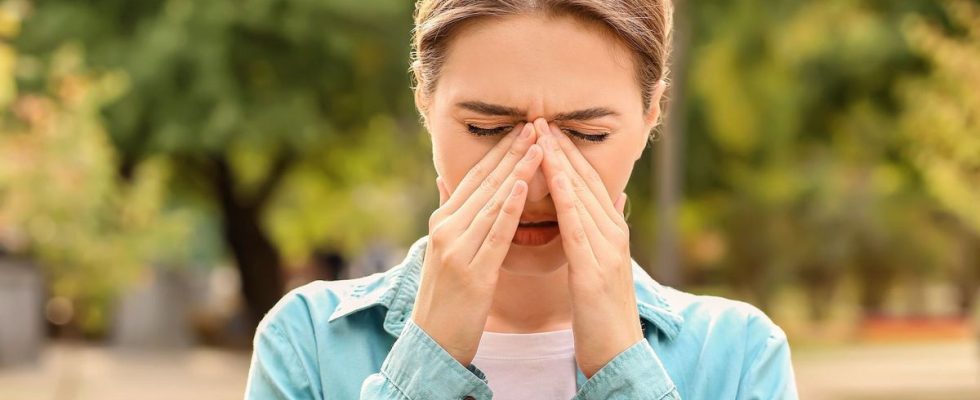Published on
Updated
Reading 2 min.
The particularly mild temperatures at the start of the year favored pollen production. Nine departments are already on red alert.
Bad news for allergy sufferers. The National Aerobiological Surveillance Network has already placed nine French departments on red alert for pollen.
High allergy risk around the Mediterranean
Conjunctivitisrhinitis, asthma… Allergy sufferers know this – the air is already saturated with pollen.
The particularly mild start of February has indeed favored the flowering of many trees: hazel, alder and birch in the North and cupressaceae (cypress family), ash, mimosa and thuja in the South are the main ones affected.
“My wife already feels it, her throat is scratchy and her eyes are watering”confides a walker to Franceinfo.
On the map, Bas-Rhin, Alpes-Maritimes, Var, Bouches-du-Rhône, Vaucluse, Gard, Hérault, Aude and Pyrénées-Orientales have already gone into Red zone.
“In the south of the country, Cupressaceae pollen (cypress family, etc.) continues to seriously bother allergy sufferers, with the risk of allergy remaining high around the Mediterranean and medium in the southwest. The ash trees are also in full bloom, releasing their allergenic pollens with a low to medium level allergy risk, or even locally high as in Narbonnais.“, warns the National Aerobiological Surveillance Network.
As for hazel and alder pollen, they are also present throughout the territory, “with a low to medium risk of allergy, or even locally high as in Bas-Rhin“, further specifies the Network.
The situation is unfortunately not likely to improve since the mildness, sun and wind of this week will come.promote the emission and dispersion of pollen in the air“.
- People allergic to pollen should not take walks in the countryside and/or drive a car with the windows open;
- They must clean their nose and eyes with physiological serum every evening without forgetting to rinse their hair;
- In the event of heavy flowering, clothes worn during the day should be put in the washing machine in the evening;
- People most at risk must take preventive treatment with antihistamines which can be accompanied by corticosteroids (drops in the eyes for example).
